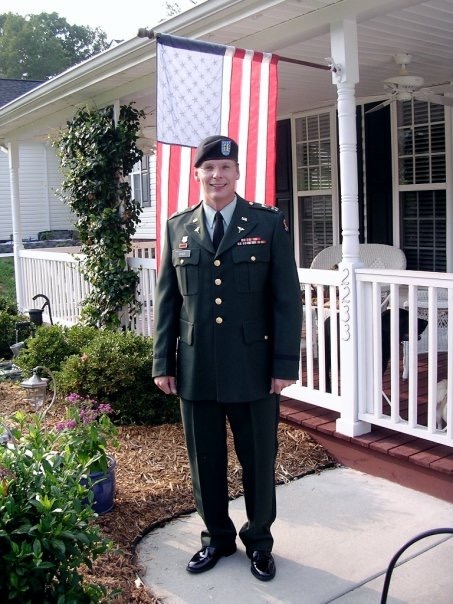Army Veteran Trained to Work Autonomously in Giving Anesthetic Care to Patients
In 1998, Joel followed in the footsteps of many of his family members and joined the military. As a U.S. Army Reservist during Operation Enduring Freedom, he was deployed stateside to Fort Leonard Wood in Missouri, where he worked at the General Leonard Wood Army Community Hospital. He cared for active duty soldiers and veterans and was responsible for all aspects of anesthetic care. He performed more than 100 epidurals during his 90-day deployment. While working at the Army Hospital, Joel cared for a soldier who was in a motorcycle accident on the base. He successfully completed the general anesthetic for a fractured humerus and did a post-operation supraclavicular block for pain control. He safely administered anesthesia and cared for the patient without physician supervision. “As a civilian CRNA, I’ve been fortunate enough to work with anesthesiologists who respect my knowledge and what I’ve been trained to do,” Joel said. “Even though I’m not a physician, I don’t need hand-holding when providing anesthetic care.” “Managing anesthesia services such as an epidural or spinal is harder than the actual placement. You can teach a monkey to do a procedure, but the management requires thinking,” he explained. In May, the U.S. Department of Veterans Affairs (VA) published a proposed rule to extend full practice authority to CRNAs and other advanced practice registered nurses serving in the VA. Joel thinks granting CRNAs the ability to administer anesthesia to the full extent of their training will help alleviate issues such as long wait times, experienced at VA facilities. “I’ve heard stories about how long it can take to get things done in the VA hospitals from friends who work there,” he said. “CRNAs are trained and qualified anesthesia providers who can help patients save time and money as well as improve Veteran’s access to anesthetic care.” In addition to caring for patients, Joel said he was attracted to a career as a CRNA because of the autonomy and ability to make decisions directly related to anesthetic care. This proposed rule will grant CRNAs working in the VA to independently provide anesthesia services without oversight from a physician when working within their scope of practice. Joel has written a letter to advocate and inform U.S. legislators of the competency, training and expert care CRNAs possess to perform anesthesia autonomously in VA facilities across North Carolina. He encourages others to visit www.veteransaccesstocare.com before July 25, 2016, to ensure our nation’s veterans have access to the high-quality health care they deserve. |


 As a certified registered nurse anesthetist since 2000, Joel Briner stays busy in a career he loves. He administers anesthesia at a hospital serving the community of Salisbury, N.C., and at a surgery center in nearby Concord. In addition, he owns Embers Anesthesia Services, Inc., where he provides anesthetic care to patients undergoing reconstructive surgeries.
As a certified registered nurse anesthetist since 2000, Joel Briner stays busy in a career he loves. He administers anesthesia at a hospital serving the community of Salisbury, N.C., and at a surgery center in nearby Concord. In addition, he owns Embers Anesthesia Services, Inc., where he provides anesthetic care to patients undergoing reconstructive surgeries.